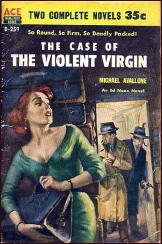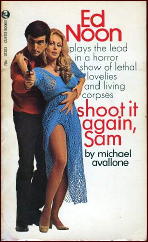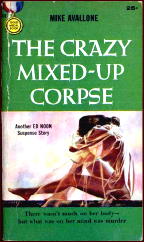Interview - Kenneth Atchity the American Story Merchant
Kenneth Atchity is an American producer and
Author who has worked as a literary manager, editor, speaker, writing coach,
brand consultant and professor of comparative literature. He’s been called the
story merchant.
He is the captain of ships such as www.storymerchant.com ; Atchity
Entertainment International, inc (www.aeionline.com
); The Writers Lifeline, Inc (www.thewriterslifeline.com
) and The Louisiana Wave Studio which together produce films and develop books
for publication, screenplays, and films
for television and cinema--and consult with writers about their career
strategies and tactics.
In this interview we are aiming to discover more about
Kenneth himself and the world he lives in. As per the first interview http://ow.ly/dx211 which was
based on the launching of the Messiah Matrix – we are enormously grateful for
Kenneth to stand off his time for a written interview.
Kenneth, your entertainment career started
in 1967 and is still flourishing can you tell our readers a bit more about your
journey?
My
journey has been a rollicking literary adventure, from my days as a professor
at Occidental College and the University of Bologna, Italy, to the decision I
made to leave the academic world and enter the commercial world of
storytelling. There’s literally never been a dull moment—and the one thread
that weaves through it all is my passion for stories of all kinds. I’ve been a
first-hand witness to the world’s hunger for stories, and privileged to be able
to bring them to their audiences.
You are known for producing filmography
such as “The Lost Valentine,” “Life or
Something Like It,” “14 Days with Alzheimers,” “Hysteria,” “The Expatriate,”
and “The Kennedy Detail,” which is but a few. What do you feel has been your
best work in the filmography range?
Much
as I love the movies I’ve been lucky enough to work on, I feel my best work is
yet to come.
You founded Story Merchant for strategic
coaching in writers in 2010. What inspired the idea behind these two new
divisions?
I
founded Story Merchant because the world of publishing and entertainment has
changed so much in the last few years I found I was unable to spend time with
individual writers in a way that made business sense—and Story Merchant allows
me to do that through its (1) coaching services; (b) its publishing arm, Story
Merchant Books; and its marketing arm, Story Merchant Book Marketing. We began
(c), with my partner a former head of Fox Family Films, because the number one
challenge of any author publishing a new book is how to make it VISIBLE in a
world where thousands of books are published every single week. VISIBILITY is
the published writer’s biggest challenge, so SMBM is focused on making writers visible.
Your academic career started in 1970 up to
1986 where you received the Faculty Achievement Award and the Distinguished
Instructor at UCLA Writers program. How did you accomplish such awards within
the same year?
You
don’t really achieve awards—you just do your thing, and they either come or
not. For people who love what they do, it’s not the awards that motivate it’s
the privilege of getting to do what you love on a daily basis. It’s nice to be
recognized, but an authorpreneur needs to be self-motivated because there’s a
long wait between moments of recognition.
Your work has appeared in numerous journals
and newspapers such as the American Quarterly, Classical Philology, Comparative
Literature Studies, Contemporary Literature Criticism etc – how does it feel to
be seen as such a popular and sought after writer?
It
feels great to do the work of writing—the research, the composition, the
revision. The more you publish the more you will publish. And it’s very
satisfying to look back down a long road and see that many of my dreams—and
those of my clients and partners--reached fruition.
You have written books such as : How to Publish Your Novel (SquareOne) (2005); How to Quit Your Day
Job and Live Out Your Dreams
(Skyhorse) (2012), plus Writing Treatments That Sell: How to Create
and Market Your Story Ideas to the Motion Picture and TV Industry (Owl Books, 2003) and Write Time
(2012, available through amazon.com).
How has exposure been on these books?
It grows over the
years. It’s nice to know that several of the books have been through several
editions and continue to resonate with writers year after year. It’s an
extension of my years in the classroom to reach out and help people accelerate
their progress along the success curve.
Have readers ever given you input on how it has assisted them with their career
requirements and goals?
I couldn’t have
written any of these books without constant input from students and clients
along the way. It’s their experiences, in failure and success, that I describe
in these books.
Your companies - Atchity Entertainment International, Story
Merchant, and The Writer's Lifeline have been responsible for launching
numerous books and films. I mean the list of stuff you have done is never
ending, where to from here?
If
I’m lucky enough to continue, I will continue pushing forward the projects I’m
involved with—both my own personal projects like my first novel The Messiah
Matrix which we talked about here earlier, and the many projects of my
clients—wonderful books, screenplays, and stories that are just waiting their
turn to see the light of day. And my honor and responsibility is to move them
toward the light!
Have you ever thought about stretching your
skills into countries that are not as skilled as America?
I
did experiment a few years ago with reaching out to Brazil, at the request of a
consultant from that country. I wish there were a way to do that at least in
other English-speaking countries around the world because the world I work in,
publishing and producing, is increasingly global so the principles I propound
are universal.
In 1990 you founded the editorial and
consulting company The Writer’s Lifeline, Inc. I am told that this company has
been responsible for over a dozen best sellers. Can you tell our readers a bit
more about what the company consists of?
The
Writers Lifeline, consisting of select editors I’ve chosen over the years to
work with clients, is all about bringing “a writer’s skill and craft to the
level of their vision and ambition.” On one hand, we ghost-write stories and
information that the author needs put into the world; but on the other, our
primary mission, is we make books and scripts ready for publication and
production by giving them the conceptual, structural, style, and copy editing
they need to stand out as professionally worthy of commercial acceptance.
You also do a lot of television, radio, web
and television interviews and classes on contemporary literature, creativity, dreams,
myth, writing, producing, publishing, time-management, business expansion,
brand launching, and various other academic and entertainment-publishing
subjects.
Where do
you see yourself going with all of this within the future?
I
am consolidating more and more of this into Story Merchant Book Marketing so
that I can buy the time to help writers more. Writers need to remember the
simple arithmetic, money buys time (that’s what the saying “Time is money” is
all about). We all want unlimited freedom to create, so that means we need to
achieve unlimited financial reward for the fruits of our creation. Anything I
can do to concentrate and streamline my time helps me get more stories into the
world.
In 2011 you were nominated for the Emmy for
Outstanding Achievement in the Field of Documentary Programs on The Kennedy Detail
– this was shown on Discovery Channel last year. And now you’ve turned the same
book into a feature film, currently being written by director Stephen
Gyllenhaal that will be released in 2013..
What do you expect to see from viewers on
this release?
I
know we will see respect for the amazing men who served President Kennedy even
at the moment of this death—and had to endure the pain of it, and then go on
with their work of attempting to protect the next president, and to move the
country forward despite tragedy. I’ve seen that respect pouring out throughout
the book tour for The Kennedy Detail and in the television audience’s reaction
to the documentary—so I know the feature audience will express it as well.
How did it feel to be nominated for such an
award?
It
felt surreal to be in the room with the icons of television news and get to
meet some of them at the pre- and after-party. There’s something so ‘arbitrary’
about awards and nominations—as I said earlier, you just do your work and focus
on it, and sometimes it’s recognized. The recognition is time-consuming—I could
be at my phone working on future deals. But it’s good to pause for them, take a
breath, and put it all in perspective. There are SO MANY wonderful people
working in publishing, television, and film that just being in the same room
with them makes you realize that dreaming is the foundation for the reality we
all live in. I got to be in the room with fellow dreamers. That’s like dying
and going to heaven!
South Africa seems to be a country that holds
a lot of promise in many things. Filmography and publishing are but some of its
lesser opportunities.
How do you perceive these two factors to
grow in the future?
As
the world continues to shrink thanks to the technologies and the internet, film
and publishing will grow in all parts of the world. I’ve been offered to
amazing South African projects in the last two months, and there are many out
there being dreamed at this very moment—persistence will turn them into
realities.
For someone like me – Hollywood and big
novel publishing brands seems to be something that is not easy to come by. It’s
as if success is mostly concluded through the people you know and the money you
could spend. Have you ever thought about branching out internationally?
I’ve
become all too aware of my limitations—primarily the limitation of the hours in
the day. The only way I could conceive of branching out further is with the
help of energetic partners who can build the infrastructure. Otherwise I’m
happy with my present base, though I have clients in South Africa, Hong Kong,
Germany, Belgium, France, England, Australia, Canada—and probably a few others
I’ve forgotten at the moment.
If someone wanted to submit a manuscript or
screenplay for your recommendation – what steps do they need to follow?
The
best way to get my attention these days is to submit it to the ‘project launch
analysis’ on www.thewriterslifeline.com
That way your project gets read, analysed, and reported back to me—for me to
take a look at if it’s ready to move forward. If it’s not ready, you’ll be told
why and we can help you do something about it.
What genres do you follow?
We
have worked in every imaginable genre. I just love GOOD STORIES of all kinds.
Which age groups are you limited to?
We
aren’t limited to any age groups. We’ve found ways to work with them all.
Where can people follow your work and
access your sites for possible submissions and enquiries?
What
do you prefer – reading, writing or screen?
I
equally prefer reading and watching movies.
These days I find that the line between
novel publishing and putting it to screen has become fairly narrow. There are
very few books I have read that hasn’t made it to film or possible future
filming.
I’m
surprised because it’s my experience that the book that makes it to film is 1
in a hundred or more. Great books are the exception, but it still can take
years to get to the screen.
What is your viewpoint on such a matter?
Persist.
Do it right. Learn everything you can, especially from other people’s
experience.
What are your views when it comes to online
kindle reading and actual printed novels – do you feel that the market will
always remain for physical publishing?
I’m
sure it will remain for another 50 years, though I’m not sure it’ll be that
long. When Gutenberg invented the printing press I’m sure folks still said, “I
prefer my scroll.” But 50 years later I doubt that anyone was still making
scrolls, and few still reading from them.
Final words for striving authors and
producers around the world.
If
you have a dream, you have a responsibility to yourself and to us to make it
come true. That’s the most important thing in your life. Don’t let anything
stand in its way. And let me know if we can help you get there!
Kenneth –
thanks so much for granting me this interview.





















 Demonkeeper
is a short novel aimed at children aged 10 and up. It is laugh-out-loud
funny in places, and my favourite part of the book was when Nat
accidentally microwaved one of his demon minions (it exploded but don't
worry, the demon survived).
Demonkeeper
is a short novel aimed at children aged 10 and up. It is laugh-out-loud
funny in places, and my favourite part of the book was when Nat
accidentally microwaved one of his demon minions (it exploded but don't
worry, the demon survived).